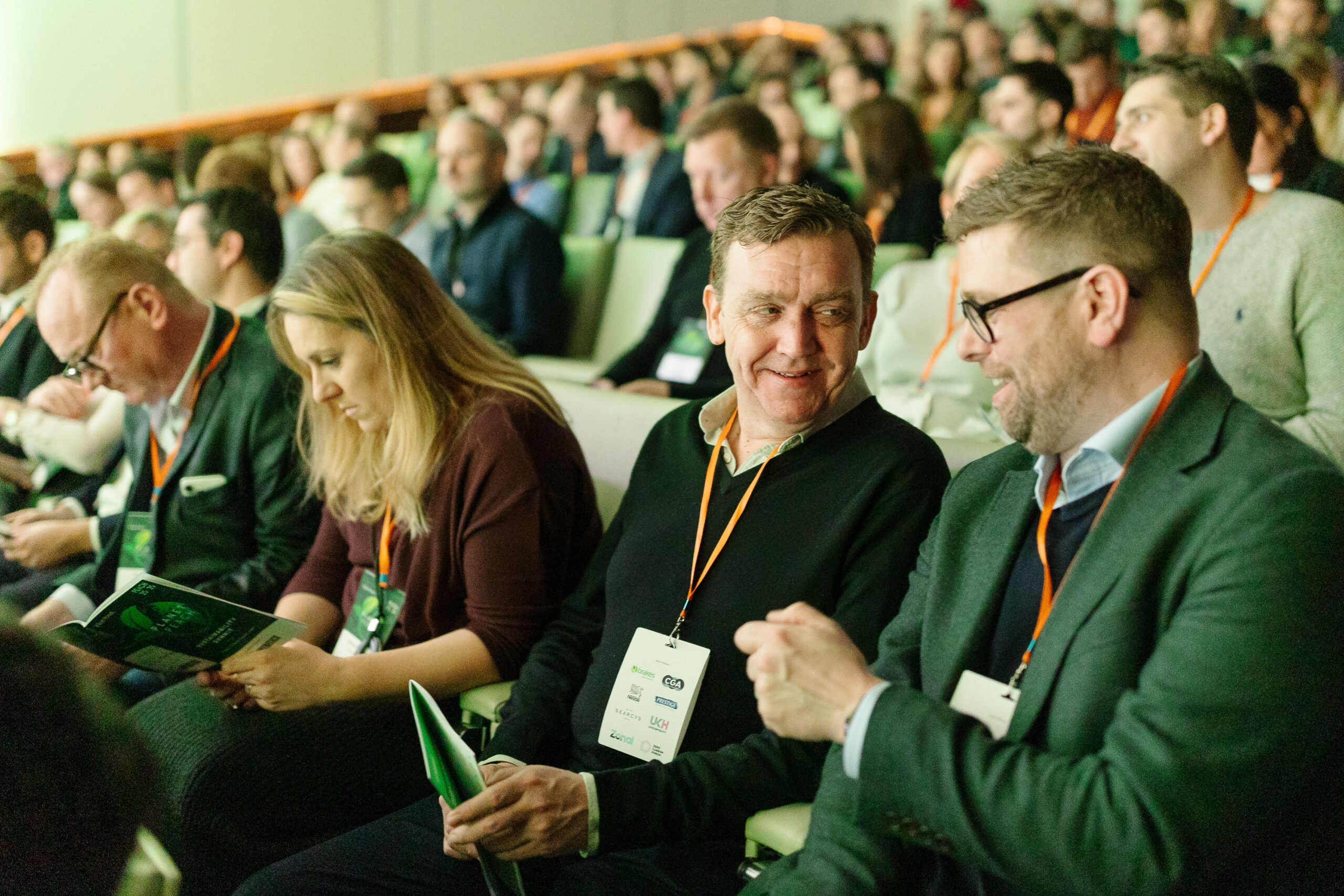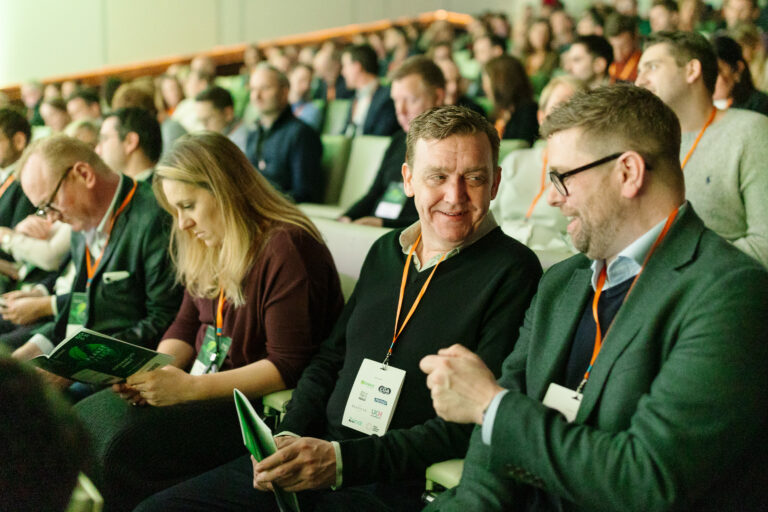From Manuela Nistor, Senior Event Manager at 30 Euston Square
Through years of guiding clients through every type of event, I’ve learned that success comes down to three key elements: thorough planning, clear communication, and trusting the process. Here’s my practical 9-step guide to help ensure your event runs seamlessly.
Before diving into logistics, get crystal clear on what you’re trying to achieve. Are you organising an exhibition that requires extensive display space? A conference heavy on AV elements and presentation technology? An intimate dinner focused on networking? Or perhaps a hands-on workshop where flexibility is key?
Understanding your event’s core purpose will guide every decision that follows. I always ask my clients: “When your attendees leave, what do you want them to remember most?” This helps shape everything from venue layout to catering choices.
This is where the foundation of your event really takes shape. I work through these essential elements with every client:
Target Audience: Who exactly are you inviting? Corporate executives, medical professionals, creative teams? Understanding your audience helps determine everything from menu preferences to room setup.
Number of Attendees: Be realistic about your expected numbers. At 30 Euston Square, our flexible spaces can accommodate everything from boardroom meetings to 300-person conferences, but knowing your numbers early helps us recommend the perfect space.
Budget: Set a realistic budget that accounts for venue, catering, AV requirements, and any unexpected costs. I always advise clients to keep 10-15% aside for last-minute adjustments.
Sponsors and Speakers: If applicable, confirm these early. They often have their own requirements that need factoring into your planning timeline.
Book as early as possible to secure your preferred date. I can’t stress this enough – the best venues and dates get snapped up quickly, especially during peak seasons.
When choosing your date, research what else might be happening. Are competitors hosting similar events? Are there major holidays or industry conferences that could impact attendance? I once helped a client avoid a potential disaster when we discovered their original date clashed with a major industry trade show.
Make sure your chosen venue meets your standards and requirements. At 30 Euston Square, our variety of flexible spaces means we can adapt to most needs, from our intimate Heritage Rooms to our impressive 300-seat auditorium.
Get your marketing materials ready early. Develop a clear event identity – whether that’s a logo, tagline, or simply consistent messaging across all communications.
Create your event website or dedicated pages that clearly communicate what attendees can expect. The clearer your messaging, the better your attendance rates will be.
This step is crucial for understanding who’s actually coming. Use your invitation process to gather essential information – not just numbers, but dietary requirements, accessibility needs, and any special requests.
I always encourage clients to send invitations at least 6-8 weeks in advance for corporate events, allowing time for people to plan around their schedules.
This is where my mantra “every detail counts” really comes into play. Nothing should be left to chance. Create a comprehensive timeline covering everything from supplier deliveries to the final clean-up.
I work with clients to map out every aspect: room layouts, catering schedules, AV requirements, registration processes, and backup plans for any potential issues. The more detailed your planning, the smoother your event day will be.
My golden rule: Never assume, always ask. If there’s any doubt about a requirement or detail, clarify it immediately.
Complete your event function sheet with your chosen venue, confirming food choices, dietary requirements, and technical specifications. Reconfirm everything with third-party suppliers well in advance.
Develop backup plans for every situation – whether that’s additional volunteers for registration, alternative catering options, or technical support. At 30 Euston Square, our experienced team helps coordinate with all suppliers to ensure seamless delivery on the day.
The big day has arrived! Stay calm and trust your preparation. Our supportive on-site team handles all technical and operational aspects, so you can focus on your guests and the event experience.
Remember, even with the best planning, small issues may arise. The key is staying flexible and trusting your team to handle them professionally.
No feedback is bad feedback! What you learn from one event can only make the next one better. Gather input from attendees, suppliers, and your own team.
I always conduct post-event reviews with clients to understand what worked well and what could be improved. This insight is invaluable for future events.

One of my most memorable successes was a three-day medical conference in June 2025, expecting over 200 guests per day with different attendees each time. The complexity was immense – multiple dietary requirements, extensive medical equipment displays, and varying daily programs.
We held planning calls twice monthly leading up to the event, meticulously tracking every detail from food choices to delivery schedules. The detailed communication and thorough preparation paid off beautifully – we received wonderful feedback on all aspects, and the client said they looked forward to returning next year.
This event reinforced my belief that success comes from nurturing every detail and maintaining open communication throughout the planning process.

Poor Communication: This is the biggest challenge I help clients overcome. Keep communication channels open and ask questions “just in case” – even if they seem obvious.
Leaving Things Too Late: The earlier you start planning, the more options you’ll have and the less stressed you’ll be.
Forgetting the Little Details: It’s often the small touches that make events memorable. Don’t overlook things like welcome drinks, comfortable seating arrangements, or clear signage.
Not Having Backup Plans: Always prepare for the unexpected, whether that’s additional volunteers, alternative menu options, or technical support.
After years of event management, these three principles guide everything I do:

Having worked in events for many years, I can honestly say that 30 Euston Square stands out for two crucial reasons. First, our amazing team members all work toward the same goal – delivering successful events. There’s no individualism here; we collaborate to ensure your event succeeds, and this teamwork creates a trust that clients feel immediately.
Second, our venue offers something unique – a variety of well-maintained spaces in a beautifully maintained Grade II* listed building. Whether you need our Heritage Rooms for executive meetings, the State Rooms for larger presentations, or our auditorium for conferences, each space offers something special while maintaining the elegant atmosphere that makes clients feel welcomed and well looked after.

Meet With Purpose This March
We have spaces available to help you capture business potential ahead of the new financial year.
Don’t miss out on the opportunity to build momentum in 2026 by booking your meeting and event spaces early.